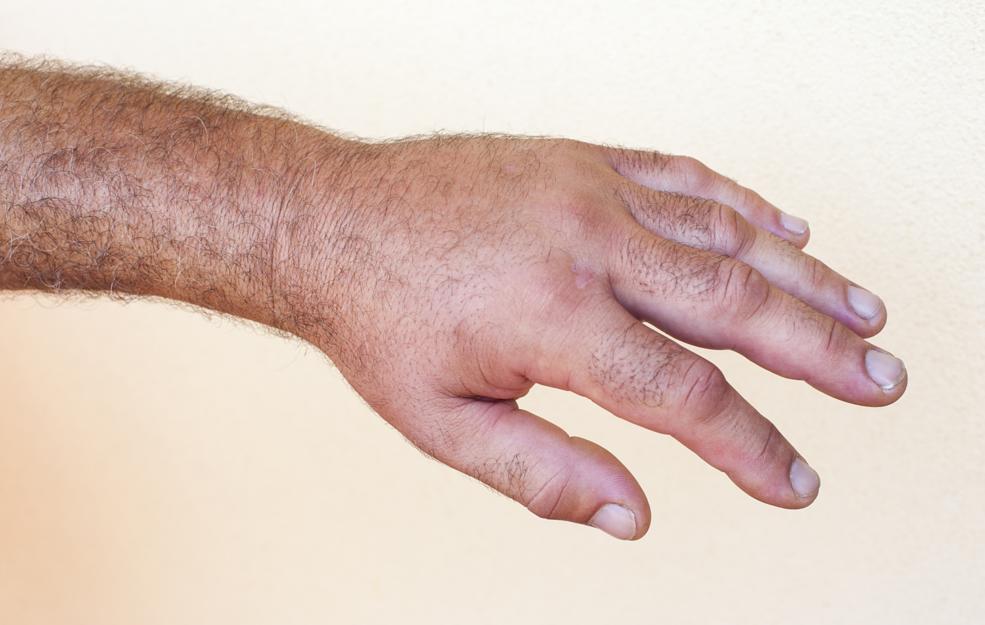Fentanyl Side Effects

Dizziness

Drowsiness

Headache

Shortness of breath

Weakness

Swelling

Difficulty breathing

Overdose
















Generic Name: Fentanyl
Brand Name: Sublimaze
What Is Fentanyl?
Fentanyl is a very powerful opioid medicine. Opioid medicines are also called narcotics. It is very similar to morphine, but can be fifty to one hundred times more potent. Fentanyl is mostly used as anesthesia to prevent any pain after surgery or any other medical procedure.
Fentanyl is available in various forms:
- Injection solution, most commonly
- Nasal spray
- Transdermal patch, extended release
- Transdermal patch, device assisted
Points to remember before taking fentanyl:
- One should not take this medicine if allergic to fentanyl or any other narcotic pain medicines.
- Once you receive the fentanyl medication, the doctor will keep a close watch for anything unusual. This will help the doctor determine if the medicine is working properly and if the treatment should be continued or stopped.
- After receiving the medicine, if you or your child experience any of these signs, inform the doctor: stiffness in the muscles, chest pain, irregular or fast breathing, or shortness of breath.
- Fentanyl should not be misused, since it can lead to addiction, overdose, and, in severe cases, death, especially for those taking this medication without a prescription.
- There are some medications that can interact with fentanyl and lead to a serious condition called serotonin syndrome. Let your doctor know if you are already on medication for another medical condition, such as depression, Parkinson’s disease, migraine, any type of mental illness, or prevention of nausea or vomiting.
- It is still unclear if fentanyl can cause any harm to unborn babies in pregnant women. Hence, one should inform the doctor if one is pregnant or if there are any plans to become pregnant. It is also not known if fentanyl can pass into breastmilk, which may cause harm to the baby, so inform the doctor if you are breastfeeding.
- There are certain side effects which can be caused by fentanyl, such as impairment of thinking or reactions in a person. Hence, one should not drive or do anything that requires being awake and alert; due to effects such as dizziness and drowsiness, one can have accidents or falls. Avoid drinking alcohol for several hours once the fentanyl injection is given.
Let your doctor know if you suffer from any of the below medical conditions:
- Liver disease
- Kidney disease
- Previous history of injury to the head or tumor in the brain
- Irregular or slow heartbeat
- Lung disease
- Problems breathing
- Usage of the sedative valium
- Usage of any MAO inhibitor, such as selegiline, isocarboxazid, phenelzine, linezolid, or blue injection methylene
How Is Fentanyl Administered?
Fentanyl is injected into the muscle or vein via an IV. This is usually given to patients as part of the anesthesia prior to surgery or any other medical procedure. The doctor will keep a tab on the patient’s breathing, oxygen levels, and blood pressure to ensure there are no side effects from the injection. Once the fentanyl medication is discontinued, the doctor will give other pain medications.
Since this injection is only given under a doctor’s supervision, there is no instance of a missed dose or overdose. However, in very rare cases, an overdose can occur, which would result in the patient having extremely slow or shallow breathing.
What Are the Side Effects of Fentanyl?
One should seek medical help if there are any signs of an allergic reaction to fentanyl, such as swelling of the face, throat, lips, or tongue, difficulty breathing, or hives. Similar to other narcotic drug reactions, fentanyl can cause slow breathing. If timely help is not received, the slow breathing can turn weak and ultimately result in death.
The doctor will watch out for any of the following signs, which usually clear up within minutes after the infusion of fentanyl or by decreasing the dose:
- Stiffness in the muscles
- Shallow or weak breathing
- Fainting
- Severe weakness throughout the body
- Light-headed feeling
- Irregular heartbeat
Below are the major common side effects:
- Confusion
- Convulsions
- Black or tarry stools
- Fainting
- Decrease in urination
- Chest pain
- Vision problems
- Cough
- Increased thirst
- Difficulty breathing
- Dryness of the mouth
- Dizziness
- Fever
- Chills
- Irregular heartbeat
- Pounding in the ears or neck
- Pain in the muscles or muscle cramps
- Pain in the lower back or side
- Feeling light-headed
- Mood swings
- Loss of appetite
- Nausea
- Vomiting
- Skin turning pale
- Sore throat
- Rapid breathing
- Nervousness
- Tingling sensation in the hands, feet, lower legs, or ankles
- Tightness in the chest
- Wrinkled skin
- White spots in the mouth
- Ulcers in the mouth
- Tiredness
- Unusual bruising or bleeding
- Too much exertion
Below are the major, less common side effects:
- Headache
- Clumsiness
- Seizures
- Abdominal pain
- Decreased urination
- Twitching of the muscles or joints
- Legs, arms, feet, or hands feeling shaky
- Trembling sensation in the body
- Feeling very sleepy all the time
- Change in balance or walking
- Severe constipation
- Hallucinations
Below are the minor side effects that commonly occur:
- Feeling sad or lonely
- Sleepiness
- Trouble sleeping
- Sudden weight loss
- Difficulty moving
- Trouble concentrating
- Joint pain
- Loss of interest
- Loss of strength
- Feeling irritated
- Inability to concentrate
Below are the minor side effects which occur less commonly:
- Skin rashes
- Itchy skin
- Trouble with gums or teeth
- Changes in vision
- Sweating
- Redness of the skin
- Tension in the muscles
Drug Interactions
Opioids are known to interact with many other drugs, which could lead to dangerous side effects or, at times, death. Hence, one should inform the doctor if they use:
- Drugs that make you sleepy or cause slowed breathing, such as a sleeping pill, sedative tranquilizer, or muscle relaxer
- Other types of narcotic medications, such as cough prescription medicine or opioid pain medication
- Drugs that can affect the serotonin levels in the body, such as depression medicine, serious infections medicine, medicine for Parkinson’s disease, or medication for migraines.
Fentanyl Abuse and Withdrawal
Opiates and fentanyl have common side effects such as drowsiness, itching, and euphoria. Fentanyl is known to have a fast-tolerance building effect, hence, the person is quickly relieved of the pain. However, fentanyl has two major effects: overdose and addiction. One should note that an individual could become addicted to fentanyl without abusing it. This means that those individuals would take the drug on a timely basis just as directed by the doctor, but the addiction would be on the physical level. In such cases, the individual would be able to be weaned off the drug by a doctor and would not need any further treatment. But when an individual uses this drug as a solution to escape from the problems of life, the addiction becomes both psychological and physical. In such cases, this individual would need to be sent to a drug rehabilitation center to recover from both fronts. Below are the withdrawal symptoms of fentanyl:
- Chills
- Excessive sweating
- Anxiety attacks
- Feeling extremely restless
- Runny nose
- Vomiting
- Eyes watering
- Getting irritated easily on small matters
- Pain in the bone and muscles
- High blood pressure
- Lack of sleep
- Nausea
- Feeling weak
- Cramps in the stomach or abdominal pain
This list makes it clear that abusing fentanyl is very dangerous and can lead to miserable conditions. Such individuals often lose their ability to even make any rational decisions. Hence, one should use this drug only as prescribed by the doctor.









